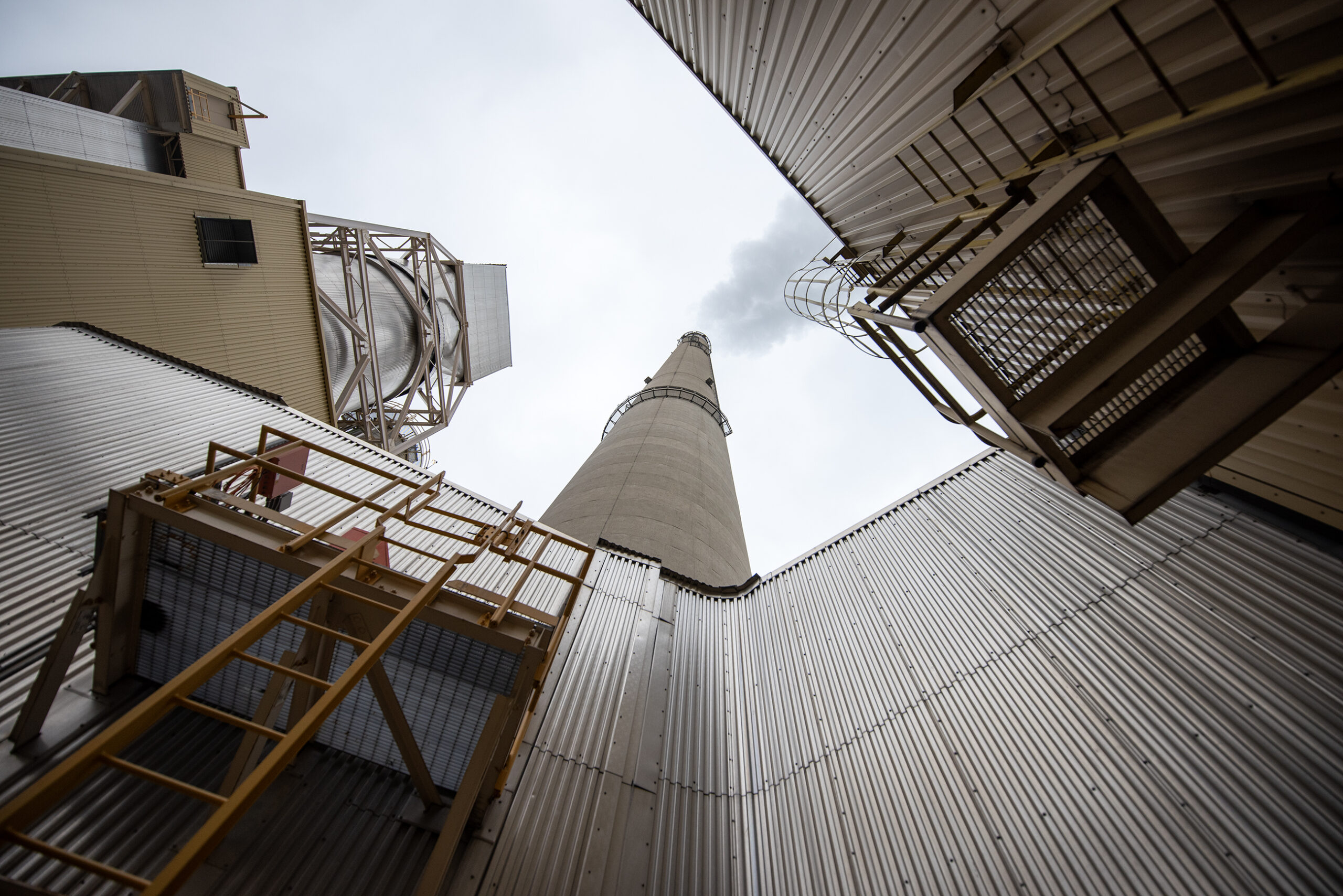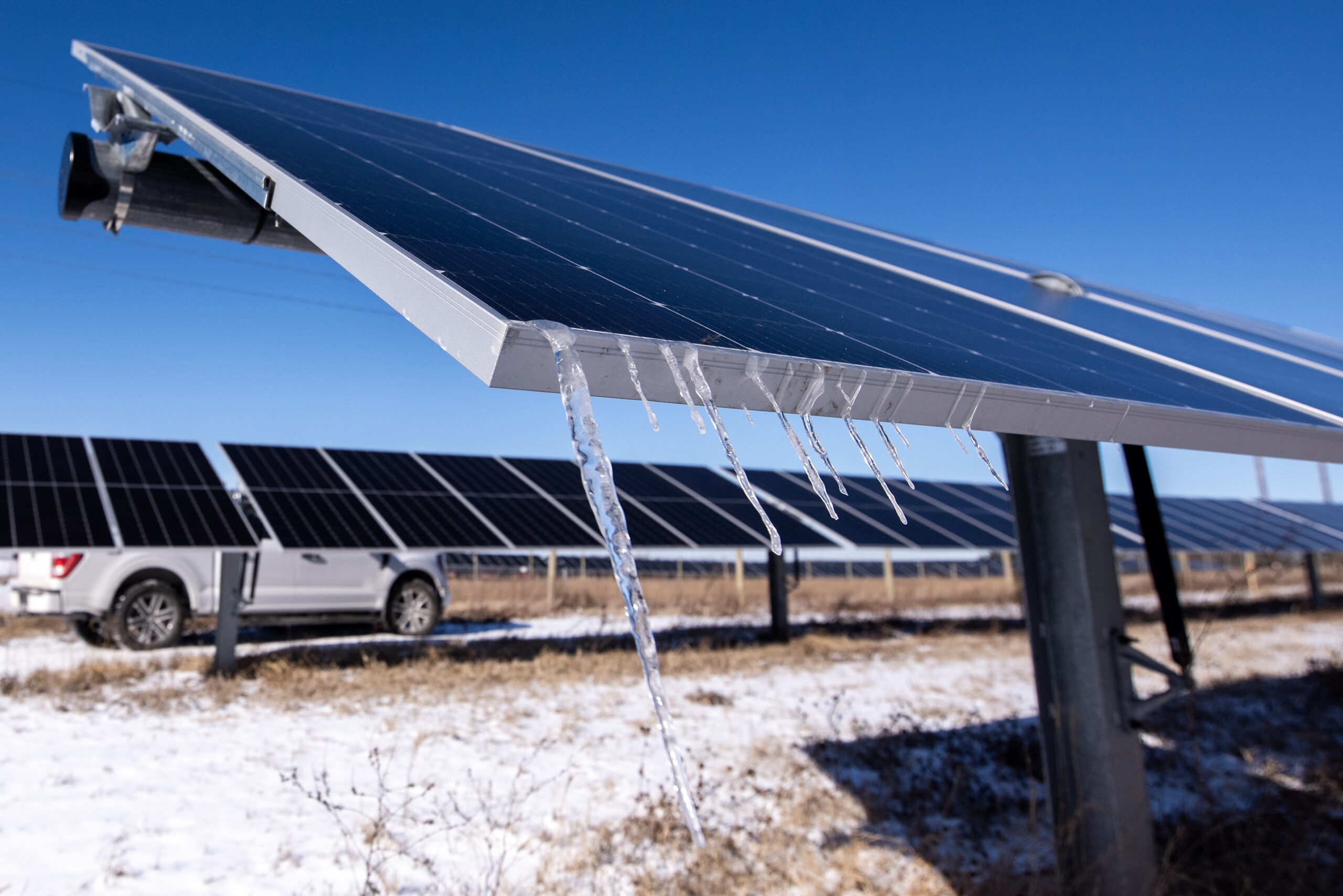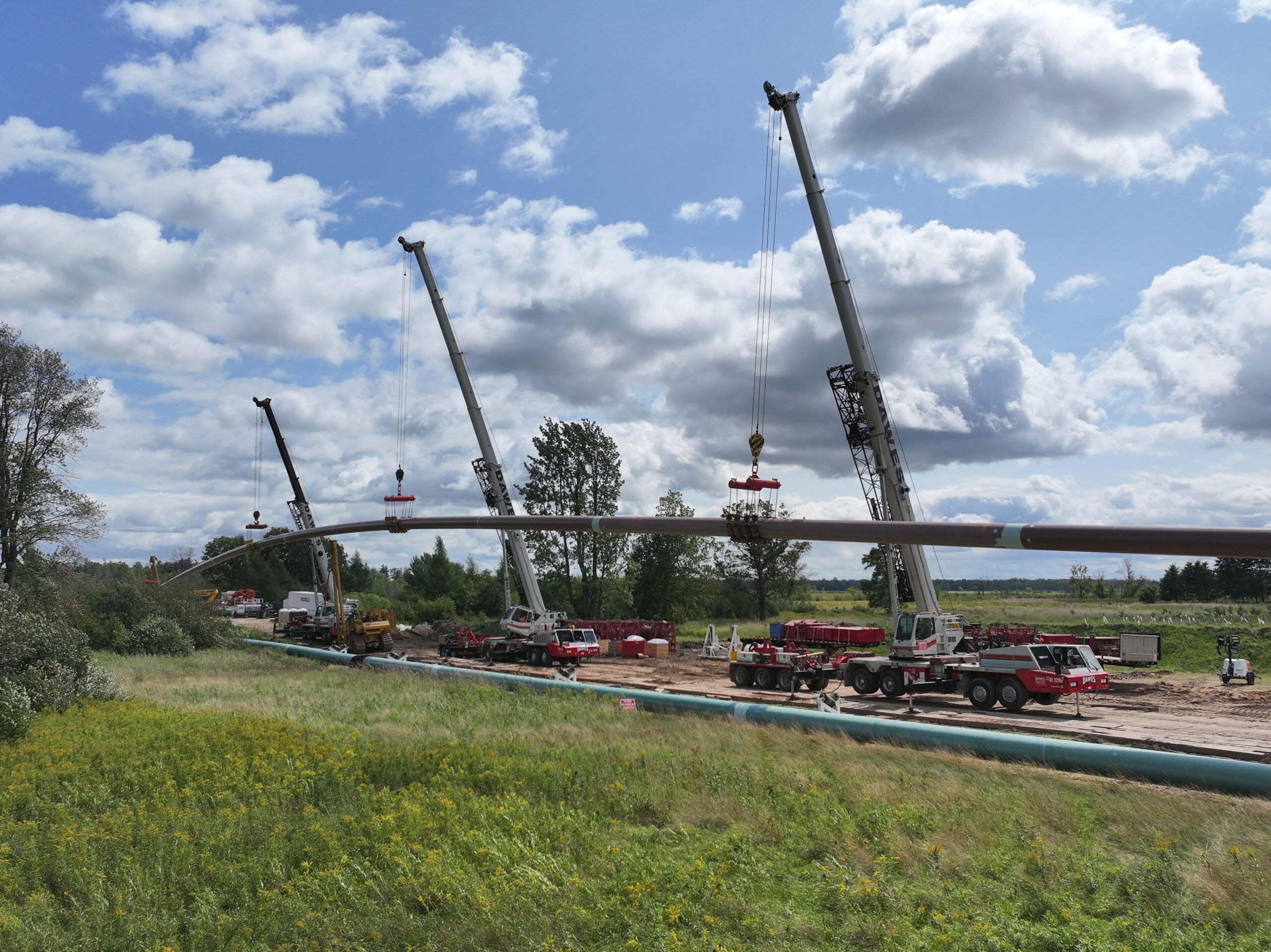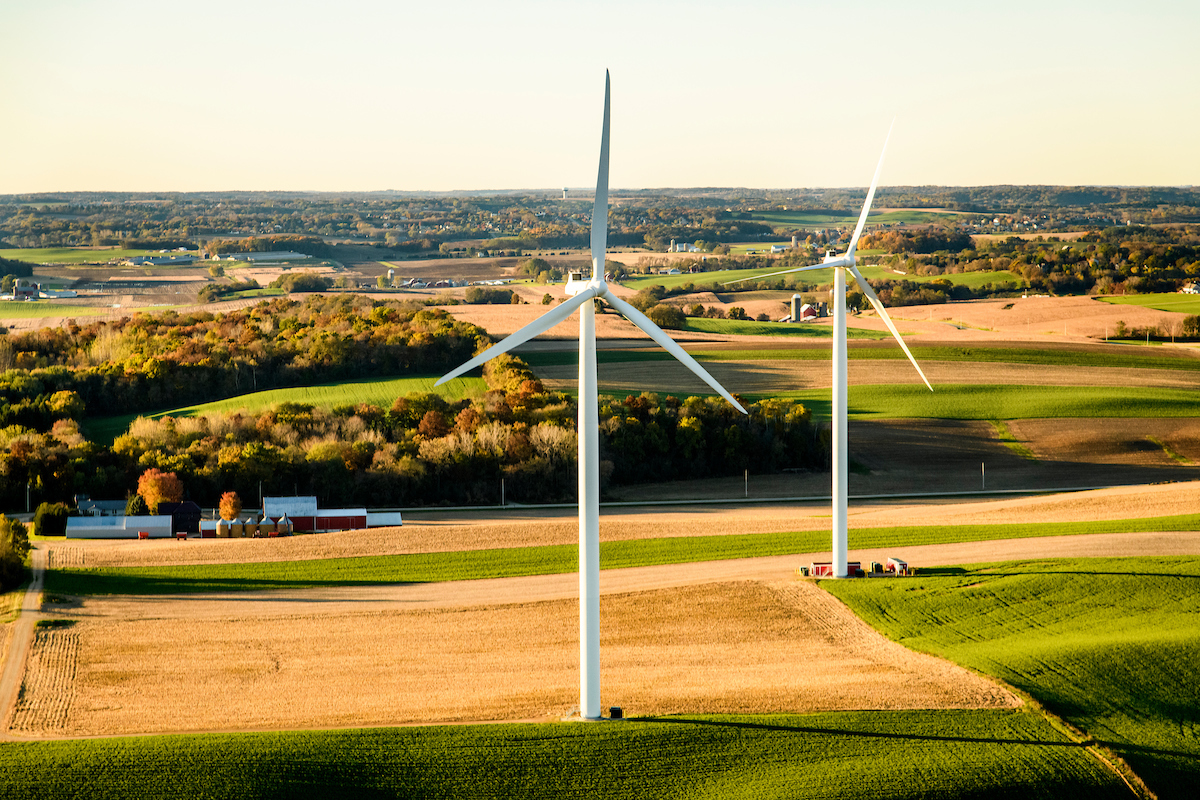Clean energy and environmental groups from across Wisconsin are coming together to oppose new fossil fuel infrastructure investments proposed by state utilities.
Those groups have formed the Power Wisconsin Forward campaign to host events aimed at informing Wisconsinites of the environmental impacts of natural gas, and the benefits of clean energy. It’s an offshoot of the Clean Economy Coalition of Wisconsin, which brings together more than 50 organizations.
Power Wisconsin Forward is raising concerns about plans by WEC Energy Group, the parent company of We Energies and Wisconsin Public Service, to build $2 billion worth of natural gas infrastructure in the southeastern part of the state.
News with a little more humanity
WPR’s “Wisconsin Today” newsletter keeps you connected to the state you love without feeling overwhelmed. No paywall. No agenda. No corporate filter.
Those plans include building a new natural gas plant on the Oak Creek Power Plant Campus and converting the Elm Road coal plant in Oak Creek to a gas plant. The utility also plans to build a 33-mile pipeline to supply those sites, and install combustion engines in Kenosha County.
At the same time, We Energies and WPS earlier this year applied for rate increases worth roughly $800 million over the next two years.
“We Energies is raising rates and proposing very expensive methane gas infrastructure, which is just harming its customers,” said Laura Lane, communications coordinator for Healthy Climate Wisconsin. “While that’s happening, the technology with renewable energy is just getting better and better, and our neighboring states are taking advantage of that.”
The coalition is also opposed to Alliant Energy’s plan to convert its coal-fired power plant in Sheboygan into a natural gas plant by 2028.
According to the United Nations Economic Commission for Europe, natural gas produces roughly half the carbon emissions of coal plants but it releases methane, which has more than 80 times the warming power of carbon dioxide over the span of two decades.
“The methane really escapes during the fracking and the transport of the gas,” said Amy Barrilleaux, a spokesperson for Clean Wisconsin. “It’s almost as bad, if not worse, than burning coal on site, when you consider the totality of the impact of methane escaping. But then when it’s burned, that’s when it releases nitrous oxide and other kinds of chemicals that really harm health.”
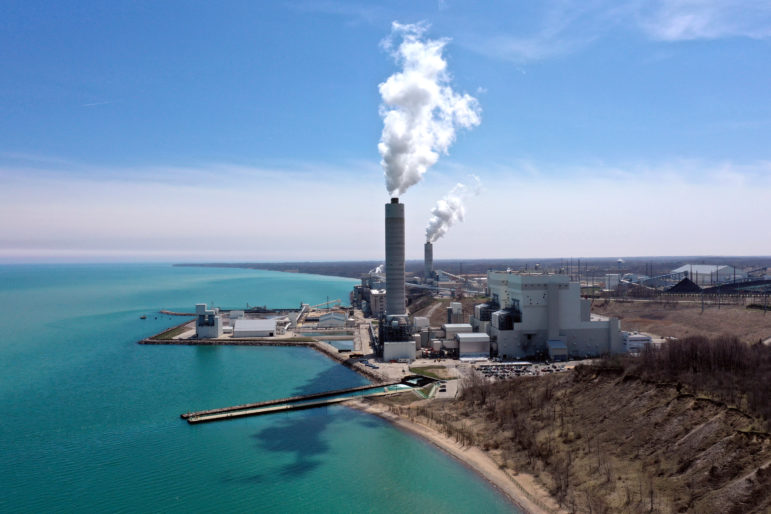
Utilities, environmental groups disagree on reliability of gas
Utilities have said their natural gas investments are meant to be a compliment to clean energy resources, allowing them to have a reliable source of energy for times when the sun isn’t shining and the wind isn’t blowing.
Brendan Conway, a spokesperson for WEC Energy Group, said We Energies’ proposed natural gas investments will “ensure reliability” during the clean energy transition.
“It is critical for us to have quick-start gas plants available and running in our state for those times when intermittent renewable generation cannot meet customers’ energy needs,” he said in an email. “Absent some breakthrough in long duration energy storage, these proposed plants are the cheapest, most reliable and lowest carbon approach to support our customers when solar and wind are not able to provide enough power.”
But Power Forward Wisconsin contends that natural gas isn’t as reliable as utilities say it is.
Earlier this year, an issue brief from the Union of Concerned Scientists found gas plant failures accounted for 63 percent of the generating capacity knocked offline when Winter Storm Elliott hit the central and eastern portions of the country in 2022.
“This narrative around gas being necessary for reliability is just not true,” said Cassie Steiner, senior campaign coordinator for the Sierra Club. “We have a lot of options that can build out a reliable clean energy not only future but present for all of us. The choices that are being made today are substantial and will impact us for years to come.”
It’s not clear whether the Public Service Commission of Wisconsin will approve plans from utilities to expand natural gas. In June, commission chair Summer Strand said she supports an “all of the above” approach to energy generation.
“You can’t flip a switch and get rid of one source overnight. It would be very irresponsible for us to put all of our eggs in one basket,” she said at a WisPolitics luncheon. “Natural gas is part of that existing mix right now and will continue to be.”
A PSC spokesperson said the view expressed by Strand is solely hers and does not necessarily reflect the views of the commission or any other commissioners. The spokesperson said those comments should not be interpreted as a prejudgment of any issue that may come before the commission.
“The commissioners independently review and make decisions based on the information in the official record, balancing the priorities of safety, reliability, affordability and environmental sustainability,” the commission spokesperson said via email.
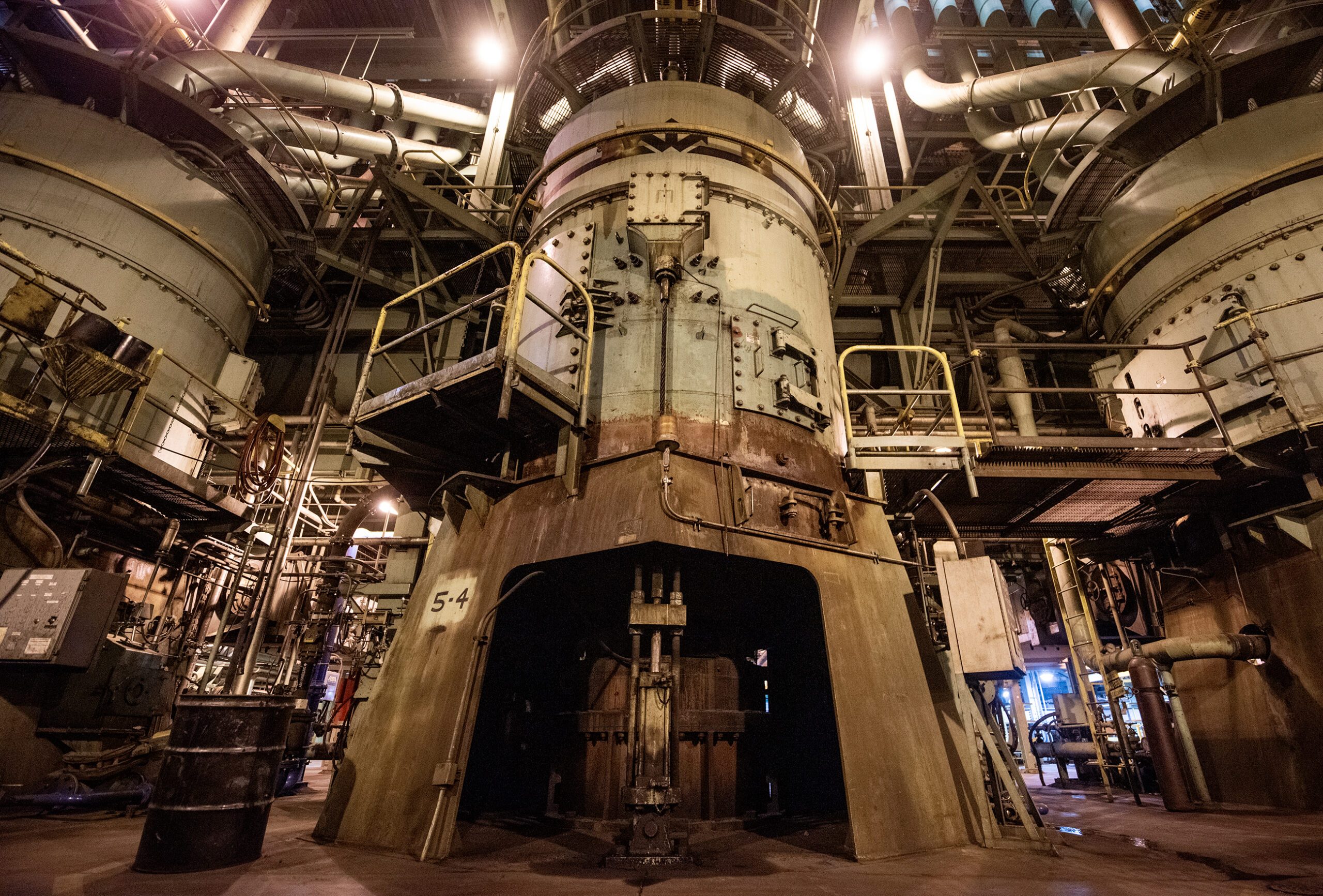
Advocates call for state to speed up clean energy transition
Steiner with the Sierra Club said the state needs to pick up the pace when it comes to transitioning away from fossil fuels.
“Wisconsin is lagging so far behind that to think we would need a bridge when we haven’t even started trying renewables close to the extent possible, is putting the cart before the horse a little bit here,” she said.
As of 2022, coal accounted for roughly 27 percent of the energy produced in Wisconsin, natural gas accounted for 26 percent, wind accounted for 19 percent and solar accounted for 3 percent, according to the PSC’s recent draft strategic energy assessment.
Utilities have said they’re committed to transitioning toward renewable energy. Alliant Energy Spokesperson Cindy Tomlinson said the utility recently finished a build out of 1,100 megawatts of solar energy.
“We remain committed to advancing our clean energy transition and doing what’s best for our customers,” she said in an email. “We are on course to be out of coal in Wisconsin ahead of our 2040 goal and maintain our commitment to reducing greenhouse gas emissions.”
Likewise, Conway at WEC Energy Group said the company has already reduced carbon dioxide emissions by 54 percent from 2005 levels, and remains committed to eliminating coal as an energy source by the end of 2032.
“As part of our efforts to provide customers with affordable, reliable and clean energy, we are investing over $7 billion in new renewable energy by 2028,” he said via email. “Thanks to these investments in new solar, wind and battery storage, we will more than quadruple our carbon-free energy in the next five years.”
But Barrilleaux with Clean Wisconsin said investing in natural gas is contrary to those goals, and was also critical of utilities for efforts to block reforms that would make it easier for Wisconsin homeowners to access solar energy.
Maria Chavez, an energy analyst with the Union of Concerned Scientists, added that fossil fuel supporters do not include health care costs when providing cost comparisons between natural gas and renewable energy.
“If we really included that holistic cost for communities to continue their over reliance on fossil fuels, we would see that the cost is way too high, not to mention any kind of climate costs that also result from that,” she said.
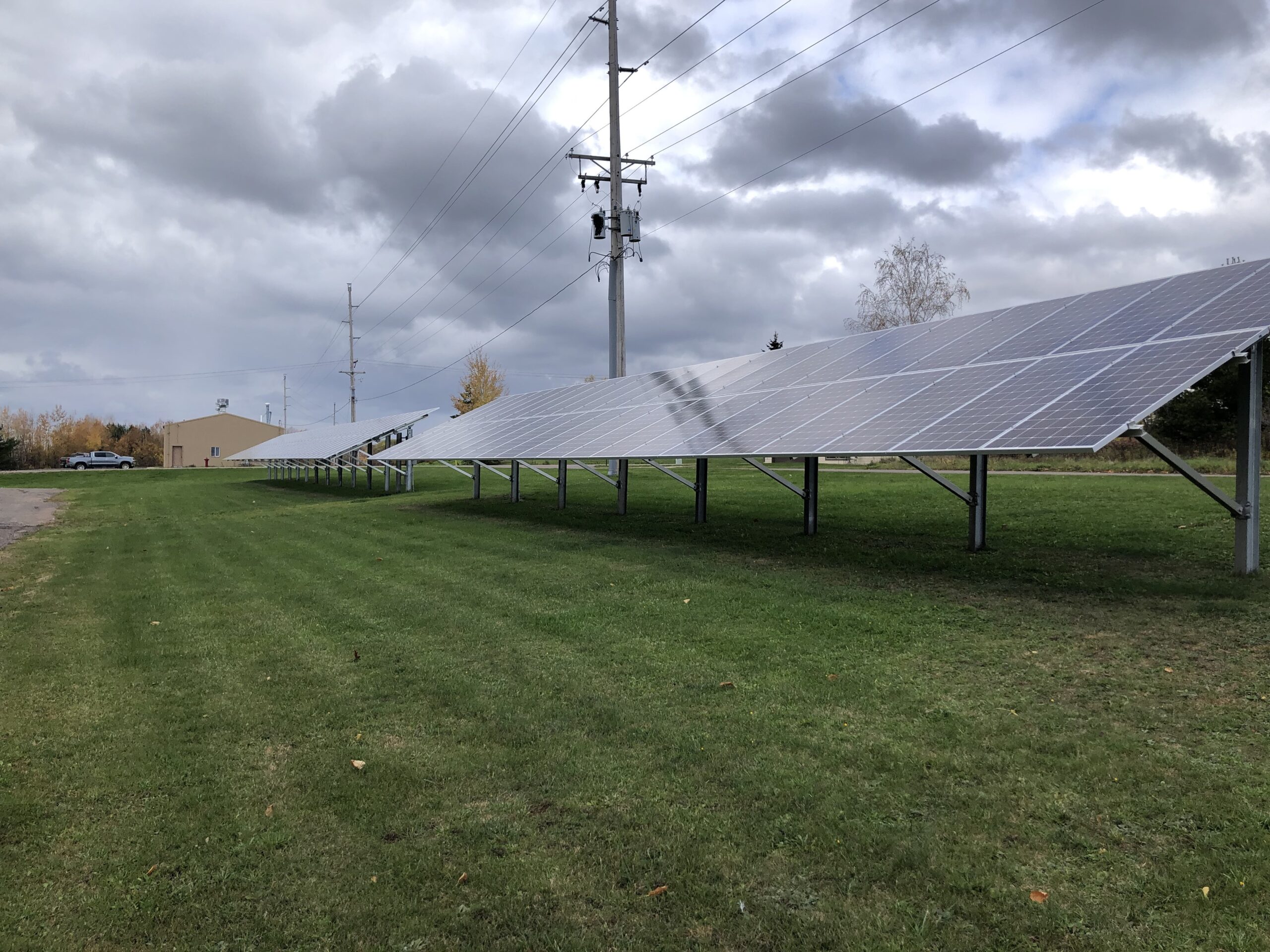
Wisconsin Public Radio, © Copyright 2025, Board of Regents of the University of Wisconsin System and Wisconsin Educational Communications Board.

